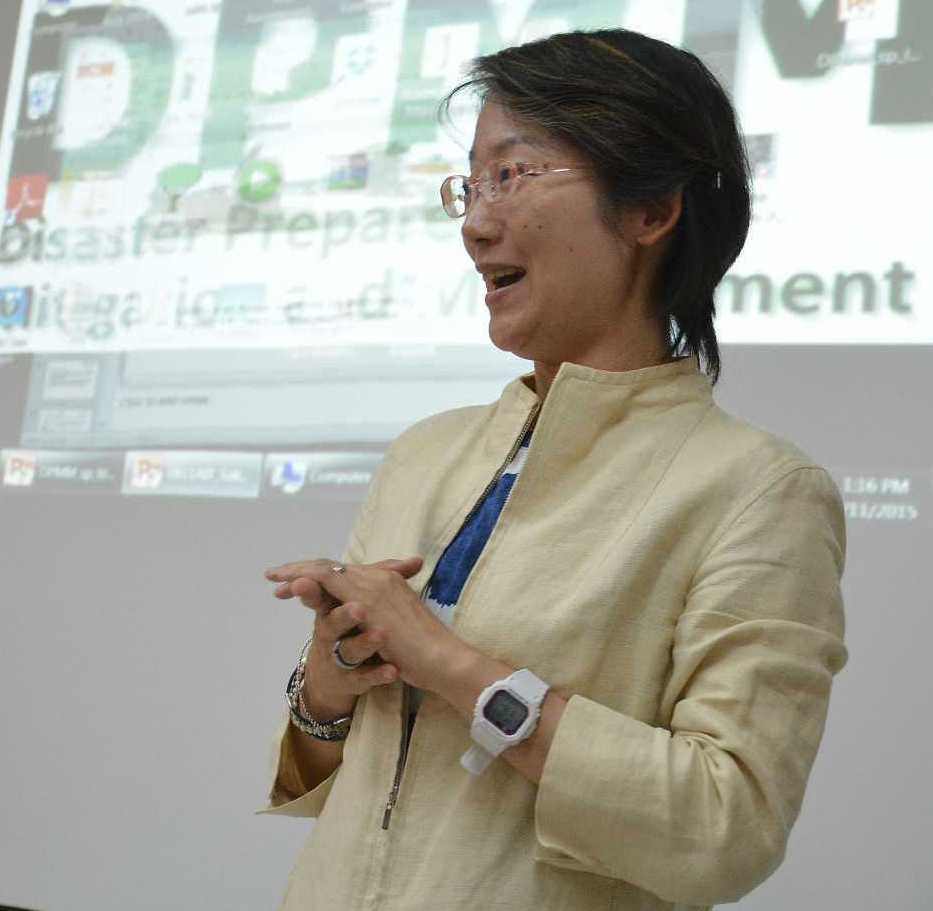Dr. Aiko, who has worked with school children following Japan’s triple
disaster in 2011, stated that in the context of disasters, education is
no longer an independent area as it is increasingly becoming more
embedded within the environment. Drawing from the Hyogo Framework of
Action (HFA), she delved on the application of town-watching and
map-making in a post-disaster education program.
“Town-watching as an experiential learning goes beyond textbooks, and
it can become a practical training tool,” Dr. Aiko remarked. She added
that till recently, disaster education was regarded as an
extracurricular activity. However, her experience with incorporating
disaster education as a part of the school education clearly indicates
that such integrated programs motivate children to contribute towards
the process of reconstruction. These programs also allow children to
keep the records of reconstruction in the school community, and it
fosters community-school interaction. “Experiential learning also helps
children know more about their own community,” Dr. Aiko remarked.
Organized by the Disaster Preparedness, Mitigation and Management
(DPMM) program, the seminar was moderated by Visiting Associate
Professor Dr. Takashi Oda.

